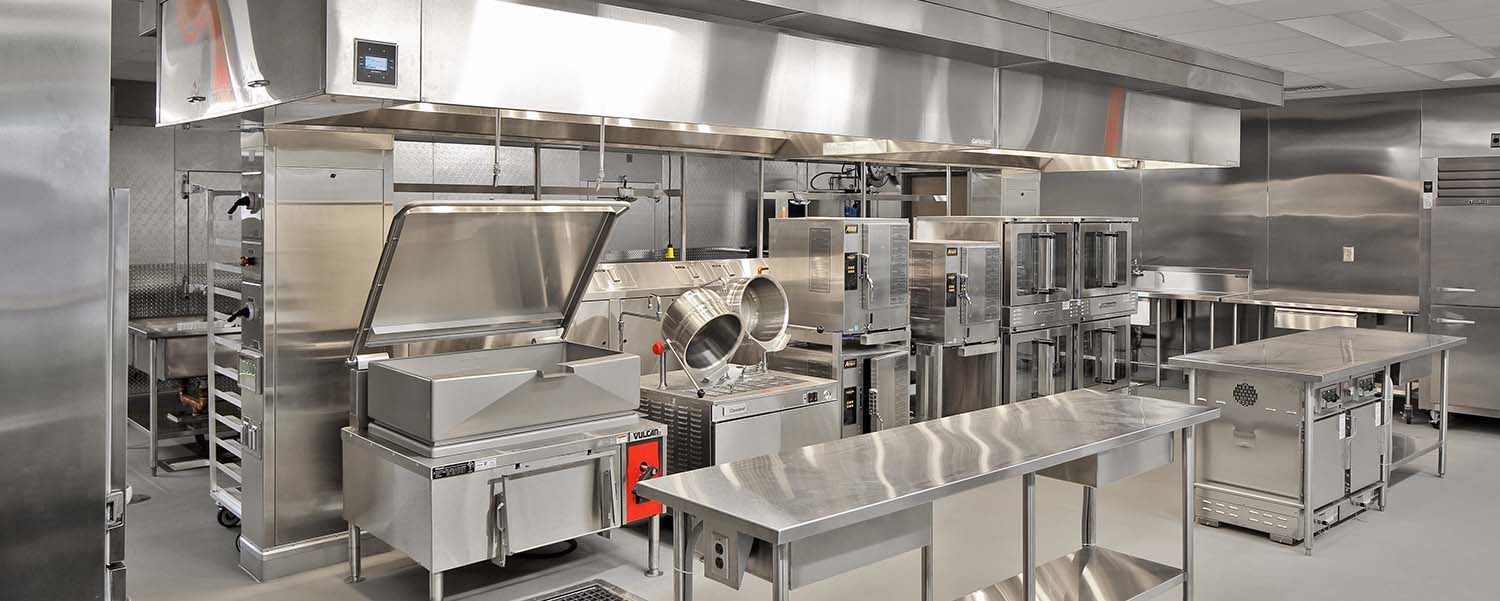The rhythmic hum of a busy commercial kitchen is the soundtrack to success for any food service establishment. From the insistent whir of the mixer crafting delicate pastries to the mighty roar of the ventilation system clearing the air, each piece of appliance plays a crucial role in the effortless process of culinary creation. But what happens when that rhythm falters? A sudden commercial kitchen equipment breakdown can throw your entire operation into disarray, leading to lost revenue, wasted ingredients, frustrated staff, and a dent in your reputation.
The good news is that many of these costly disruptions are preventable. Like a well-maintained car runs smoother and longer, commercial kitchen appliance thrives with consistent care and proactive measures. Giving time and resources to preventative upkeep is not an expense; it's a strategic investment that safeguards your bottom line and ensures the smooth functioning of your business.
With our premium appliances, you can adequately store and chill your items. For more information, check out our Commercial Refrigeration items.
This comprehensive guide will delve into the essential strategies for preventing commercial kitchen equipment breakdowns, offering actionable suggestions that you can use today to keep your business's heart beating strong.
- Embrace the Power of Regular Cleaning:
Dirt, grease, and food debris are the silent saboteurs of commercial kitchen equipment. They can clog vital components, impede heat transfer, increase friction, and create breeding grounds for bacteria. Implementing a rigorous cleaning schedule is the first and arguably most crucial step in preventing breakdowns.
- Daily Deep Cleans: At the end of each day, thoroughly clean all cooking surfaces, ovens, grills, and fryers. Remove food particles, grease splatters, and spills immediately. Strictly focus on tough-to-reach places where dust can collect.
- Weekly Intensive Cleaning: Schedule deeper cleaning tasks once a week. These tasks might involve cleaning oven interiors with specialised cleaners, descaling steam ovens and dishwashers, and cleaning the condenser coils of refrigerators and freezers.
- Appliance-Specific Cleaning: Follow the manufacturer's instructions for cleaning each piece of equipment. Various substances and components need particular cleaning products and methods, and utilising the wrong items can result in damage.
- Train Your Staff: Ensure all kitchen staff are adequately trained on cleaning procedures and understand the importance of regular maintenance. Make cleaning supplies readily accessible and integrate cleaning tasks into daily routines.
- Implement a Proactive Maintenance Schedule:
Waiting for commercial catering equipment to break down before addressing it is a reactive and costly approach. A proactive maintenance schedule involves regular inspections, lubrication, adjustments, and replacements of wear-and-tear parts before they fail.
- Consult Manufacturer Manuals: Your product manuals are invaluable resources. They outline recommended maintenance schedules, lubrication points, and common issues to watch out for. Adhere to these guidelines diligently.
- Develop a Checklist: Create a detailed maintenance checklist for each piece of equipment, outlining the tasks to be performed at specific intervals (daily, weekly, monthly, quarterly, annually). This step ensures you do not overlook anything.
- Lubrication is Key: Moving parts require regular lubrication to reduce friction and prevent wear. Adhere to the supplier's guidelines to locate lubrication points and try the prescribed lubricants.
- Inspect Regularly: Teach your employees to conduct regular visual checks of products, examining the loose components, leaks, strange sounds, or signs of damage. Handle minor problems quickly before they escalate.
- Schedule Professional Servicing: Even with diligent in-house maintenance, regular professional servicing is essential. Qualified technicians sourced from top commercial kitchen equipment suppliers can perform thorough inspections, identify potential problems that might not be obvious, and perform complex maintenance tasks. Schedule these visits at least annually or more frequently for high-usage equipment.
Get the best cooktop for your kitchen with auto ignition & adjustable feet. Check out our Burner Cooktop options.
- Focus on Proper Usage and Handling:
Appliance misutilisation and mishandling are substantial contributors to premature malfunctions. It is crucial to teach your employees how each piece of equipment should work.
- Comprehensive Training: Provide thorough training to all new and existing staff on properly operating all products. Highlight the value of following the operating processes.
- Avoid Overloading: Each piece of equipment has specific capacity limits. Overloading ovens, fryers, or mixers can strain components and lead to breakdowns—train staff to respect these limits.
- Gentle Handling: Encourage staff to handle models with care. Avoid slamming doors, forcing controls, or using equipment for unintended purposes.
- Proper Startup and Shutdown Procedures: Following the correct startup and shutdown procedures can significantly extend the lifespan of your appliances. Ensure staff are trained on these procedures for each appliance.
- Report Issues Promptly: Encourage staff to immediately report any unusual noises, malfunctions, or damage. Resolving more minor problems beforehand can prevent them from becoming huge issues.
- Pay Attention to Your Environment:
The environment in your commercial kitchen can also affect the durability and performance of your commercial kitchen equipment for sale.
- Ventilation is Crucial: A properly functioning ventilation system is essential for removing heat, grease, and steam, which can damage equipment over time. Ensure your ventilation system is regularly cleaned and maintained.
- Temperature Control: Excessive heat can strain electrical components. Ensure adequate airflow around the models and avoid placing heat-generating appliances too close together.
- Humidity Management: High humidity can lead to corrosion and electrical issues. Ensure proper ventilation and consider dehumidifiers in particularly humid environments.
- Pest Control: Pests can damage wiring and other components. Implement a robust pest control program to protect your kitchen from rodents and insects.
- Invest in Quality Equipment and Consider Warranties:
While the starting investment might be higher, purchasing high-quality, durable offerings from reputable commercial kitchen equipment suppliers can save you significant money in the long run through reduced breakdowns and a longer lifespan.
- Research and Compare: Before purchasing equipment, research different brands and models, read reviews, and compare features and durability.
- Consider Warranties: Pay attention to the manufacturer's warranty. A good warranty can provide peace of mind and cover unexpected repair costs within the warranty period.
- Read the Fine Print: Try to know the in-depth meaning of the terms and conditions of your warranties, such as what is covered and what negates the warranty. Adhere to the manufacturer's maintenance recommendations to keep your warranty valid.
- Stock Essential Spare Parts:
Having a small inventory of commonly used spare parts on hand can significantly reduce downtime during minor breakdowns.
- Identify Critical Parts: Based on your equipment and its usage, identify essential spare components that are vulnerable to wear and tear, such as belts, gaskets, heating elements, and fuses.
- Maintain Inventory: Keep a small stock of these parts readily available. This step allows quick repairs without waiting for parts to be ordered and shipped.
- Train Staff on Basic Replacements: Train designated staff members on safely replacing these basic parts.
Get faster cooking and multiple levels for different varieties of preparation. Browse our commercial Microwave Ovens now.
Conclusion:
Preventing commercial kitchen equipment breakdowns is an ongoing commitment that requires a multi-faceted approach. By embracing regular cleaning, implementing a proactive maintenance schedule, emphasising proper usage, managing the kitchen environment, investing in quality equipment, stocking essential spare parts, keeping detailed records, and fostering a culture of appliance care, you can substantially decrease the danger of expensive disruptions and guarantee the smooth and effective operation of your food-related endeavours.






